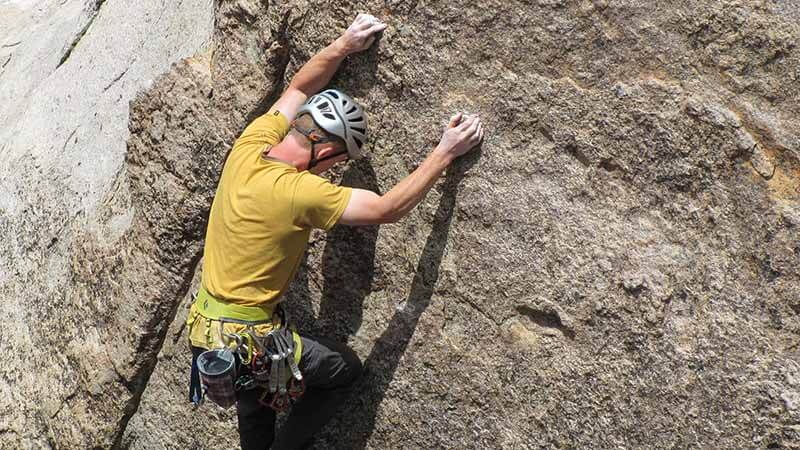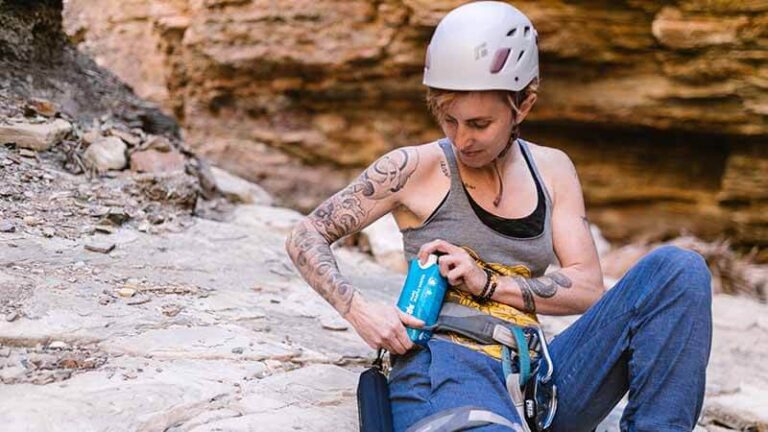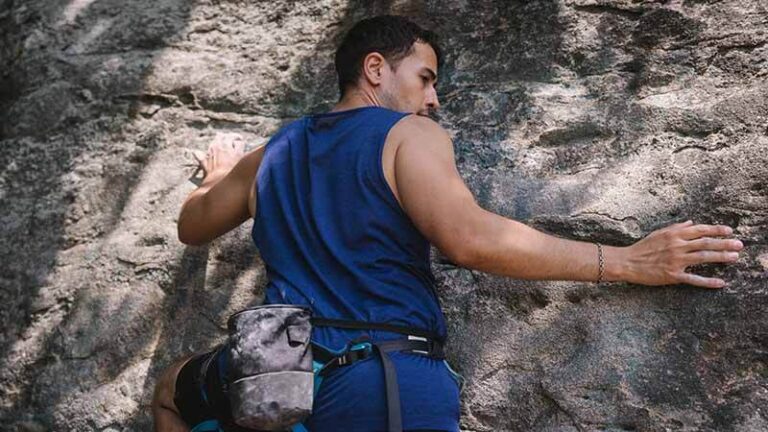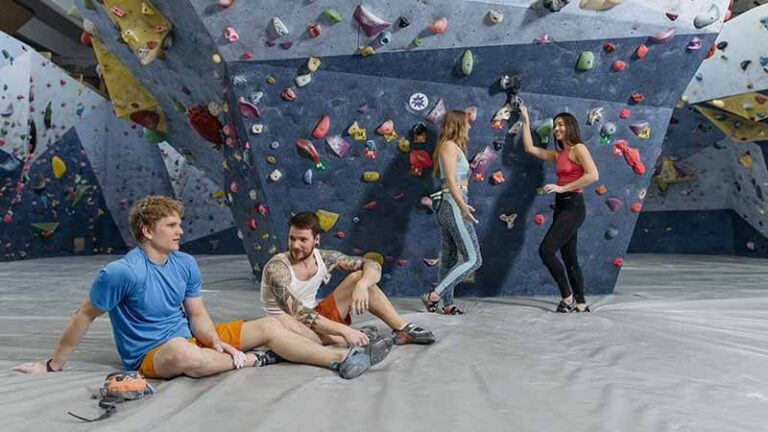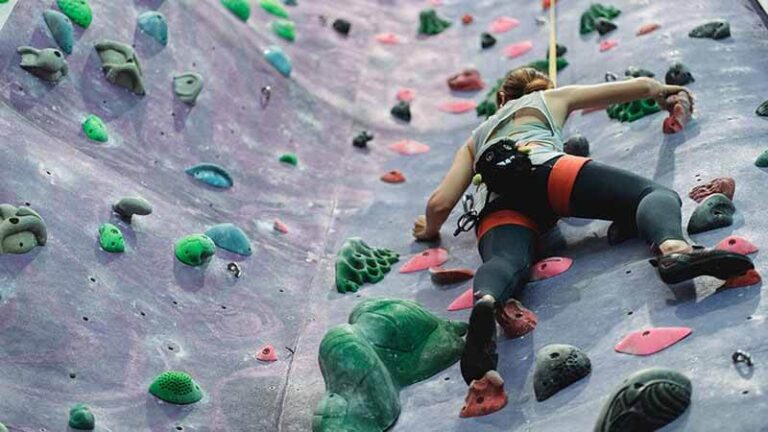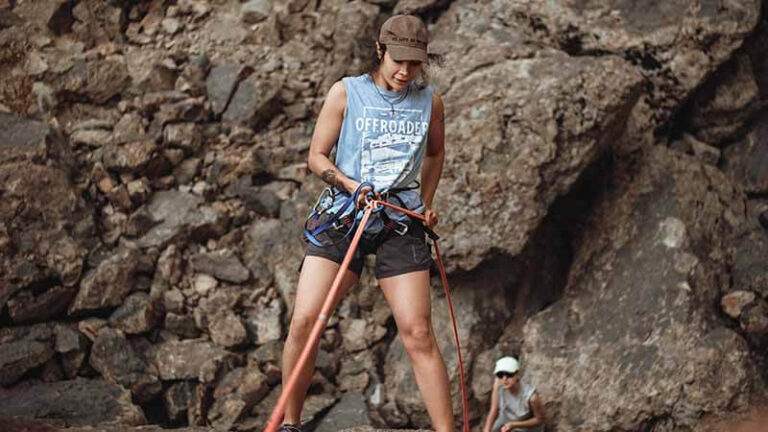Does Rock Climbing Take Skill?
Rock climbing is a recreational and competitive sport that entails ascending rock structures, typically cliffs or mountains, with the aid of specialized equipment such as ropes, harnesses, carabiners, and climbing shoes. Climbers employ their strength, ability, and mental focus to climb a variety of routes with varied levels of risk, ranging from easy to exceedingly challenging.
Climbing has a long and fascinating history, with evidence reaching back to ancient civilizations like the Greeks and the Chinese. Modern rock climbing, as we know it now, first appeared in the late nineteenth and early twentieth centuries, when mountaineers began to create specific techniques and equipment for ascending rock formations.
With the construction of indoor climbing walls and the formation of organizations committed to promoting and regulating the sport, the sport gained prominence in the mid-twentieth century. Rock climbing is now a worldwide popular sport, with many various styles and disciplines ranging from conventional outdoor climbing to bouldering, sport climbing, and more.
Physical and Mental Demands of Rock Climbing
Rock climbing is a strenuous sport that involves both physical and mental strength. Here are some descriptions of rock climbing’s physical and mental demands:
Physical Demands
- Upper body strength: Rock climbing necessitates a lot of upper body strength, especially in the arms, shoulders, and back. Climbers must be able to pull themselves up and hang onto ledges and small handholds.
- Endurance: Because climbing sometimes includes sustained periods of exercise, climbers must be able to maintain their energy levels for extended periods of time.
- Flexibility: Because climbers frequently have to bend their bodies into unusual postures to reach handholds or footholds, flexibility is essential.
- Balance and coordination: Maintaining stability and control when climbing needs a high level of balance and coordination.
Mental Demands
- Focus and concentration: Climbers must be able to retain concentration and focus on the task at hand throughout the climb. Climbers must always be mentally sharp because one mistake can lead to a fall.
- Problem-solving: Climbers must constantly assess the rock face to choose the best approach to the summit. This necessitates the capacity to appraise things rapidly, make decisions, and adjust to changing conditions.
- Overcoming fear: Climbing can be frightening, especially at high altitudes or in difficult weather. Climbers must learn to manage their fear and remain calm and focused in stressful situations.
- Patience and perseverance: Climbing can be a gradual and systematic process that demands patience and persistence. Climbers must be willing to explore new approaches and overcome obstacles in order to achieve their goals.
Skill Required for Rock Climbing
To be effective at rock climbing, a range of abilities is required. These abilities can be divided into four categories: technique, strength, endurance, and problem-solving.
Technique
The climbing technique is critical for effective and safe climbing. Body alignment, footwork, hand placement, and route reading are all examples of this. Climbers who use proper technique can save energy, move more effectively on the rock, and maintain good balance.
To climb a steep face, for example, a climber must have superb footwork. This necessitates perfect foot placement, balance, and making use of the full sole of the shoe for maximum friction.
Strength
Climbing necessitates a substantial level of upper body and core strength. Climbers must have strong arms, shoulders, and fingers in order to hold the rock and pull themselves up. Maintaining balance and stability requires core strength.
A climber, for example, must have the considerable finger strength to grip small holds. Training on fingerboards, campus boards, and other specific equipment is required.
Endurance
Climbing can be physically taxing, and stamina is required for longer climbs or routes with numerous tough moves. Climbers must have strong cardiovascular fitness and muscular endurance in order to exert themselves for extended periods of time.
A climber’s endurance is required to complete a long multi-pitch climb. This necessitates the ability to exert work for long hours, maintain energy levels, and remain hydrated.
Problem-solving
Climbing entails traversing difficult terrain and addressing challenges along the way. Climbers must be able to assess the rock and choose the best route up it. This necessitates agility, ingenuity, and the capacity to think critically under pressure.
A climber, for example, must be able to solve problems in order to travel a challenging route. This necessitates examining the rock for potential grips, deciding how to travel between them, and reacting to changing conditions.
Factors that Affect Skill Level in Rock Climbing
Climbing rocks is a difficult sport that involves physical strength, endurance, and mental fortitude. A person’s ability level in rock climbing can be greatly influenced by a variety of characteristics such as age, gender, body type, and experience. Furthermore, some climbers may confront difficult situations but still flourish in the sport.
Age is an important aspect that can influence a person’s rock climbing ability level. Younger climbers have more strength and flexibility, making it easier for them to tackle difficult routes. Climbers may gain more experience as they age, which can counterbalance the impacts of deteriorating physical abilities. Older climbers may also be more patient and meticulous, which allows them to thrive at tricky climbs.
Another aspect that can influence a person’s rock climbing skill is gender. Men have greater upper-body strength, which can be advantageous in certain forms of climbing. Women, on the other hand, are frequently more flexible and have greater stamina, making them ideal for endurance-based climbs.
Body type can also influence a person’s climbing abilities. Climbers with a lower BMI have an edge in the sport because they have to carry less weight when climbing. Climbers with a higher BMI, on the other hand, may have more strength and be more suited for forceful techniques.
The most important thing that might influence a person’s rock climbing skill level is experience. Experienced climbers have a better understanding of the skills, tactics, and mental strategies needed to effectively climb tough routes. They may have also gained strength, endurance, and flexibility through time.
Lynn Hill, Tommy Caldwell, and Chris Sharma are real-life instances of climbers who excelled despite adversity. Lynn Hill was the first woman to free climb El Capitan, a 3,000-foot granite wall in Yosemite National Park, which was previously thought impossible for a woman.
Tommy Caldwell lost his index finger in an accident but still managed to climb some of the world’s most difficult routes, including El Capitan’s Dawn Wall. Chris Sharma has severe hearing loss but has managed to become one of the world’s top climbers, completing some of the sport’s most difficult climbs.
Importance of Skill in Rock Climbing
Skill is essential in rock climbing because it allows climbers to achieve their objectives while being safe. Rock climbing is an inherently dangerous and risky activity that necessitates a mix of physical strength, technical competence, and mental fortitude. Accidents, injuries, and even death can result from a lack of ability.
Rock climbing talent entails possessing the information, technique, and experience required to navigate various types of climbing terrain, recognize and manage the dangers involved, and make informed judgments. Skill allows climbers to move more efficiently and safely on the rock, reducing accidents and injuries.
Climbers who have improved their skills can reach their objectives with greater ease and confidence. A proficient climber, for example, can more easily complete challenging routes, climb at higher levels of difficulty, and explore new places and terrain types. Skilled climbers can compete and find success in the sport as well.
Aside from completing goals, having rock climbing skills is crucial for remaining safe. Skilled climbers have a better awareness of the sport’s possible hazards and how to minimize those risks. They understand how to utilize safety equipment such as ropes, anchors, and harnesses properly, as well as how to climb with a partner for increased safety.
Furthermore, experienced climbers have stronger decision-making skills and can swiftly analyze the dangers associated with a certain climb. They can make informed decisions on whether to continue climbing, change their plans, or return if the conditions become too dangerous. This expertise can mean the difference between a successful and fun climb and a dangerous and potentially life-threatening circumstance.
Conclusion
Rock climbing skill is critical since it influences the climber’s ability to move effectively and safely through varied terrains and obstacles. Rock climbing requires a mix of physical strength, balance, coordination, and mental attention, which can take years of practice and dedication to master.
An experienced climber can read a route, plan their movements, and execute them precisely, lowering the chance of falls and injuries. They will also be able to manage their energy levels and use their body weight to their advantage, allowing them to conserve energy and minimize weariness.
Furthermore, talent is required for progressing to more difficult climbs and accomplishing personal goals. Climbers may struggle to climb higher grades or undertake more challenging routes if they lack the essential abilities, restricting their growth and enjoyment of the activity.
The value of skill in rock climbing cannot be emphasized. It is essential to safe and effective climbing, allowing climbers to push their boundaries and achieve their climbing goals.

